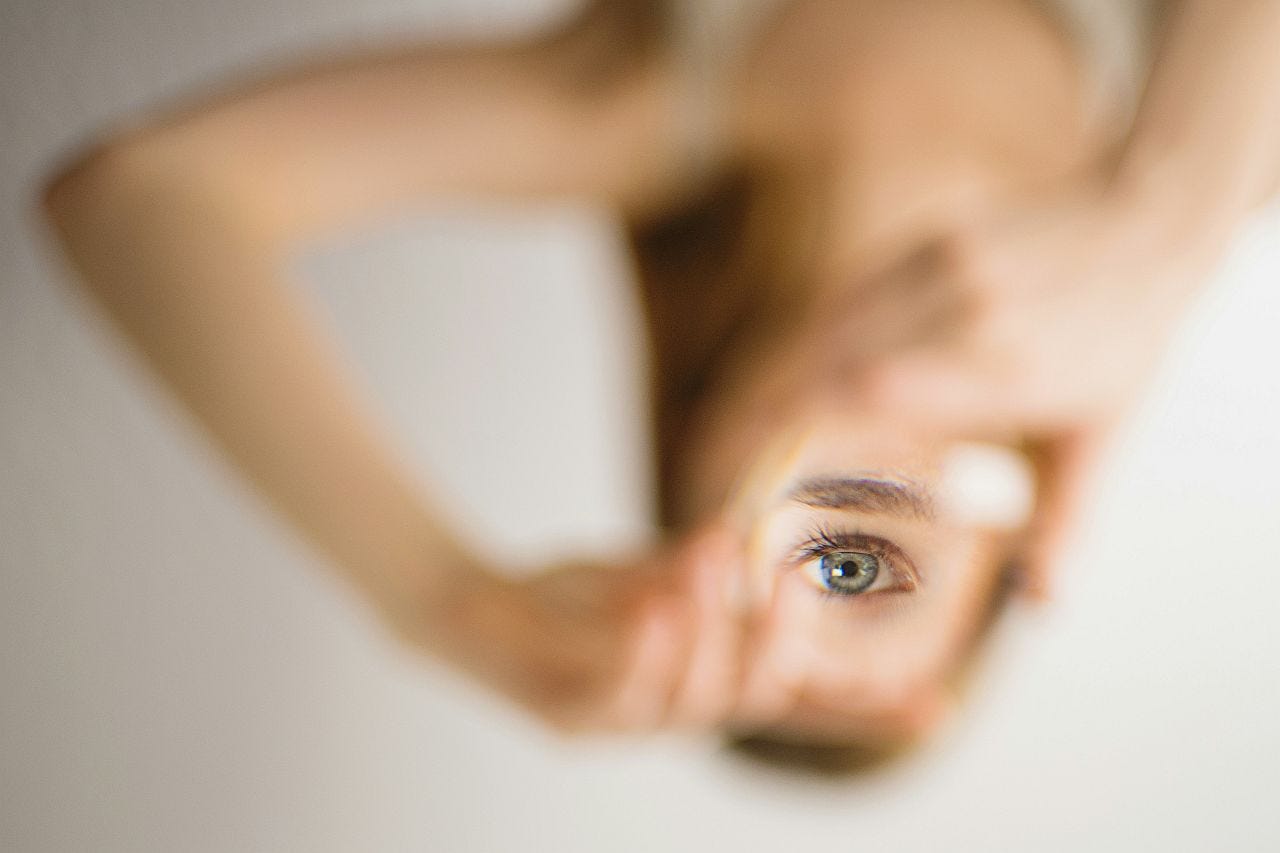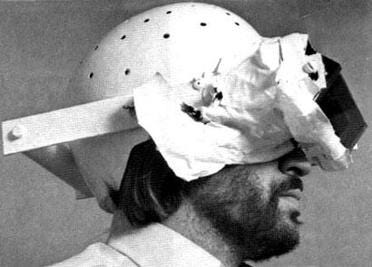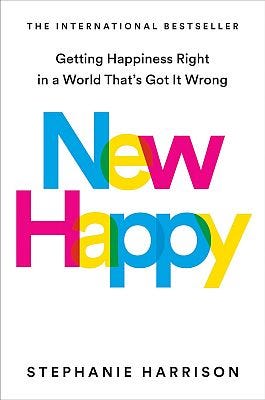Echoes of Inquiry
Which Is the Distortion?

I got new glasses this week. It has been a couple of years since I had an eye exam, and I knew things had changed. It always takes getting used to new glasses. The world looks different.
I experienced more of a difference this time, though. Things I know are round appear oblong. The edges of my vision move faster than they should. Sometimes something will look tilted to one side when compared to what they appear with my glasses off.
We always view the world through a lens, of course, the ones in our eyes. We do not see reality. We see a very narrow snippet of light processed by sense organs in our eyeballs that get interpreted by our brains. It’s not true that dogs only see in black-and-white, but it is true they can only see two of the three primary colors our eyes can pick up. Certain animals can see in ultraviolet, a wavelength invisible to humans. All of us deal with mediated reality, not reality.
So the question becomes: which is the “true” vision? Maybe the glasses give me a vision that matches reality more closely, and I only think of the non-corrected vision as “undistorted” because I’ve gotten used to it.
Psychologist George Stratton conducted a famous perceptual experiment in which he wore glasses that made the world look upside down. He stumbled around for a couple of weeks, but kept the glasses on. One day he woke up and found his brain had adapted and he could see the world as “normal” through the glasses.
Of course, when he took the glasses off, his naked vision left the world looking upside down, but it soon came back to normal. This makes sense when you realize how normal vision works. Your eye lens projects the image on your retina upside down. Your brain already has to do the inversion.
It’s a moot question, then: which is “real”? We can adapt either way.
Recently, we talked about a rare neurological syndrome that leads to distorted vision, but this is different. This isn’t about a variant. This is about what we all do, every day. As we age, our vision changes, slowly enough that we may not notice it. Every day, our brains invert what our eyes tell it. Every day, we learn to “tune out” the floaters most of us have in our vision. Every day, our eyes and our brains work together to remove the “blind spot” every single one of us has in our retinas.
That means our brains excel at helping us get used to distortions.
And, is what I’m seeing “accurate”?
Reading Reflections
A New Vision of Happy
The above feeds into what I’m reading this week. I came across New Happy: Getting Happiness Right in a World That’s Got It Wrong by Stephanie Harris after hearing her episode on “The Kintsugi Podcast” with Michael O’Brien, who has been a guest on “The Alignment Show.” It boils down to this: we live with a distorted vision of what happiness is. It’s very similar to one of Stephen Covey’s insights in The 7 Habits of Highly Effective People. In my own words, that insight is that it really sucks to spend your life climbing a ladder, only to find it was leaning against the wrong wall.
Here’s one significant insight (among many I’ve had while reading New Happy): we’ve all heard of Maslow’s hierarchy, but Maslow didn’t actually arrange all those well-known categories into a hierarchy, or at least into the familiar pyramid we’ve all seen. The pyramid resulted when consultants at Humber, Mundie & McClary tried to come up with a visual to illustrate a reporter’s understanding of Maslow.
Maslow did not say that we can’t think about, for instance, belonging to a group until we had our more basic survival needs met. In fact, he himself wrote (and I’m quoting from Harris):
…if I may assign arbitrary figures for the sake of illustration, it is as if the average citizen is satisfied perhaps 85 per cent [sic] in his physiological needs, 70 perc cent in his safety needs, 50 per cent in his love needs, 40 per cent in his self-esteem needs, and 10 per cent in his self-actualization needs. (Harris, p. 98)
As Harris summed up, “There’s no ‘getting to the top.’ We are all pursuing all of our needs all at the same time.
Not only that, but Maslow later said he had made a grave error in failing to include the sixth need for self-transcendence. Harrison contends that within that last need lies true happiness.
Bottom line: I believe your life will be better if you read and apply New Happy.
Passages and Pathways
Plumbing and Aging Structures
You might notice I’m once again behind sending this out. I appreciate the supportive comments I’ve received from people saying to take care of myself, and I’m glad you’re happy to see the newsletter whenever it reaches you. I’m probably harder on myself along those lines than anyone else is, and in the spirit of self-compassion we’ve talked about in recent weeks, I’m trying to cut myself that kind of break.
The good news: the plumbing finally got done. Now I just have to (at my pace) restore all the stuff we had to move so it could happen.
But.
In the immediate aftermath, I took a hard fall Friday afternoon and twisted my knee. X-rays confirm it is not broken, which I feared, especially after the initial X-ray made them think it might actually have broken. I just have to take it easy, put ice on it, and take some oral steroids—a follow-up to the steroid shot that hurt worse than the knee and gave a whole new meaning to “pain in the butt.” The impact on the newsletter came because I spent Saturday afternoon at the walk-in (or, as it happened, the hobble-in) clinic, the time I normally would have spent finishing up this newsletter and sending it out.
Note: just in case I got too clever with the headline, “Aging Structures” refers not to the house, but to my personal architecture.
More good news: I should be able to turn back to writing again this week. The things required around the house will take a long time, and I cannot stop everything else in its pursuit. I can already tell the impact on my mental well-being through not writing every day. I need to get back to it.
Taking a longer-range look: My 50th high school reunion is coming up the weekend of October 18 and 19, and I’m working with Nancy Fortner Hall to set up a book-signing event back in the hometown for our books and some other invited local authors. That will be fun! I became unexpectedly emotional when the invitation for the reunion came in, and I’m really, really hoping I can manage it. Murphy’s Law suggests Hannah will have some issue that weekend that will destroy the plans, but I’m working hard to make sure we can make that trip.
Donn King is The Confidence Cultivator. He is the author of The Sparklight Chronicles series of business parables (DonnKing.com/Books) and a professor of communication studies (which means “a professor of standing up in front of people and saying stuff”). He’s also a pastor, a speaker, and a communication coach. Reach out to donn@donnking.com to see how he could help you increase your impact, gain influence, and build your career.
If you get value from this publication and would like to support it, either through a one-time gift or ongoing, you can Buy Me a Coffee. Thank you for reading in any case!
Note: some of the links in this newsletter are affiliate links. That means that when you use them, you contribute to our support without increasing your costs at all. Thank you!
You know the drill—please like, comment, and subscribe. That helps others benefit.
Thanks for reading King's Chronicles! Subscribe for free to receive new posts and support my work.







Donn, excellent post. I had a perception moment yesterday. I had gotten home from church and I have 2 pairs of dress shoes. One is black the other is brown. I sat down on the couch, crossed my right leg over my left, turned on the TV. The blinds in the living room were still closed. When I looked down at my shoe it looked black. I kept staring. If I did not now that I put on my brown shoes earlier that morning, I would have told you that I had my black shoes on. I suppose the lighting was such that, although not completely dark, my eyes did not pick up the red shades in the brown color.
I also have another perception story. This was a while ago, but I still remember it clearly. I was in my office and down the hall in the kitchenette, someone was heating something in the microwave. As the aroma of the food floated into the office next door, I could hear people chattering about what they thought was cooking. The office employee swore they smelled popcorn; the parent swore they smelled oatmeal, and the student swore they smelled bacon. What was cooking was chicken. That experience taught me a lot about perception. You can't always trust your nose, and others will perceive the exact same experience differently.
And don't be so hard on yourself. You're retired! Act like it!
Sending my sympathies and understanding on the vision adjustments (with the advice: you should seek additional help if "round" doesn't look more round within about 2 weeks. You may need the fit adjusted, if not the actual prescription!) More to the purpose of my commenting: Yay on the reunion! DO GO (if at all possible re Hannah's care). I love my school reunions (when they are not canceled by hurricanes and covid (2020 was my 50th.) The book signing is a great idea too! Have fun! ~JennyP